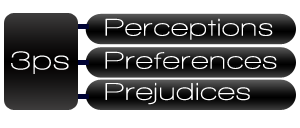The First One that Talks Loses!
None of us want to admit that we have been out-negotiated! But it happens often. We know that you need the sale, but this very important post will discuss an important tactic, and reduce the chances that you get the wrong end of the deal. You are your company’s negotiator, and your reputation is at stake. Be prepared!
________________________________
Your prospective customer calls you to meet in order to discuss your product and whether your organizations can do business. She sounds excited and you sense that this might be the precursor to a good sale.
After you arrive, after some warm-up, you get to the gist of the negotiations. She wants better payment terms and this is a big issue. You have been instructed that your organization is ‘losing’ on payment terms, obviously not collecting soon enough, and you know your bounds.
The negotiations go like this:
Customer: “This could be a deal breaker.”
You: “We can offer four (6) equal monthly payments with a 25% deposit.”
Customer: “We would like twelve (8) equal monthly payments with a 10% deposit.” She continues, “If we don’t get that, we may have to consider remaining with our current vendor.”
You: “I think we can get some movement here. I spoke to my people, and we can reduce our deposit to 15%, but our installments will remain at 6 equal.”
Customer: (Twists her face and does not respond)
You: “We are a good fit for you. I will see if there is any way that we can move to the longer term.” After a moment on the cell phone, you respond, “We have a deal! 15% deposit and 8 equal payments.”
You shake hands and head off into the sunset. You should not be smiling, as you were thoroughly out-negotiated!
_______________________________
One of the roles of a sales professional is that of negotiator. It is not a role that you occupy all of the time, but one of tasks that must be done is to finalize, which includes pricing and terms.
Negotiating is a good thing as normally if there are negotiations, there is some acceptance of the product and the relationship. The problem is most often when a customer goes silent, many in sales give up their bargaining range to get them to talk! That is what happened in this situation.
Silence is Golden – For the Silent One!
We can learn something from this customer that is priceless:
Most sales professionals are uncomfortable with silence.
Those who are anxious to please, and needing a sale, often give up their negotiating room without ever getting a “no”. They move to the customer’s position, or very close to it based on silence, or in this situation, silence and the customer’s expressions.
Now, as sales professionals like to talk, I stress that we need to pay respect to those who have learned that silence, by itself, crushes many sales negotiation strategies, and you don’t want it to happen to you.
The facial expression is an example of a ‘flinch’. The flinch with, or without silence causes many sales professionals to begin to surrender their negotiation room. A flinch can be a facial expression, upper body movement combined with a drastic facial expression, or even reaching for one’s chest or head ‘in amazement’.
Seemingly indicating that one is aghast (shocked and amazed) that the offer is so bad or lacking, has impact. What it does is to move someone closer to giving up his or her margin. Don’t be out negotiated.
I know what you are thinking, “It’s not my money!” Well it is your money! Closing the deal with the best terms is what you were hired for. Be ethical and effective in doing it and there will always be a job for you. Also, think of what happens when you, the sales professional, give up everything that you have to offer, then have to deal with the client next year. They will be expecting your ‘cave-in’ again, and you may not have any room to ‘cave’.
Silence by Any Other Name…
It goes without saying in this electronic age that silence has many faces:
- Not responding to a voice mail
- Not responding to emails or written correspondence
Here is a real life example:
I once had a position that required that I purchase personal computers for a training operation. We needed 12 computers and I negotiated for them and was not excited with the price. It was not that the price was high; it was that the resources were short, so I went to “beg” my funding sources for more resources to get the products.
I indicated that we needed to consummate the deal by Friday, and because of an illness in the family I had not responded by the proceeding Thursday. On Thursday afternoon, my assistant handed me a message from the rep cutting the price significantly. About the same time, I received a call indicating that we had the additional funds to make the purchase.
The sales representative reduced the price without me ever saying ‘No’! I wonder if his boss knows?
A Good Suggestion
I think the best suggestion that I could give you is to take a good negotiation course. All sales professionals should take a good negotiation course that also focuses on the ethical nature of negotiating. There are many out there, and they are worth their weight in gold. No different than the customer, you should be prepared to use silence as one of the tools in your tool box as well.
Your non-work life will benefit as well as there are few tasks that have as much value making sure you get the right deal.
We will cover some more negotiation techniques here in this journal, yet a course is the way to go. You will thank me for the suggestion, as there is nothing that will make you more effective and efficient after you have done the heavy lifting like cleanly and clearly negotiating the terms.
Be effective and efficient.
Your comments are appreciated.
 November 17, 2014
|
Posted by Admin9!
November 17, 2014
|
Posted by Admin9!

 Categories:
Categories:  Tags:
Tags: 


Your Comments